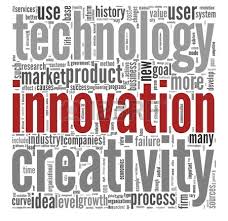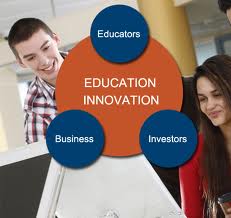Innovation is described as the process of making alterations to something which is already set up by introducing something novel. It applies to fundamental or incremental modifications to products, processes or services. Over the years there have been many changes in way education is developed and delivered in parts of world.
Today, technology is the important driver behind alteration, and sometimes plays the significant role in innovations in educational plan and delivery. There are huge possibilities for greater and wider-spread alteration with the use of present-day technological developments, and with implementation of innovative educational programs. Challenge is to make sure that innovation plays the constructive role in enhancing educational opportunities for billions of people who stay under-served in the quickly developing world.
As we look out fresh opportunities, locally and worldwide, we are becoming gradually more challenged. The world is extremely competitive. The main driver to fulfil these twin challenges is innovation, not just for short-term results businesses are so passionate about, but essentially important need to determine the pathway to sustainable development through re-occurring innovation activities.
Sadly today we yet marginalize innovation. We depend on incremental activities to pull us through short-term and just keep putting off long-term projects. Much of management in organizations is mortgaging future for today’s instant gains. Innovation requires to be better understood – in what it comprises and all the dissimilar methods it can be applied. We do require understanding it better for its important contribution potential to answer social and economic problems.
Technology cannot stand alone

Organizations today are mistaking guarantee of technology alone and this will not work; it require people, their information and experiences to apply technology. Far too frequently we are not finding the time as rising difficulty is layered onto declining human resources. We are adding up more stress into system by taking out the very solution we require to keep in place and use far more, that is our people.
We are pushed to keep up and to keep appropriate; we frequently have to hide our personal complaints as if we surface them, we might get singled out in next round of frequently mindless people cuts. We do require reversing this board room mentality and stopping cutting out variety of opinion which must be valued, not thrown away. We require making the performance potential stretch even more, motivating and maintaining these different opinions. We should locate ways to break into this ‘boom or bust’ mentality in board rooms by decreasing the very friction which stimulates greater innovation thinking.
So how can we get this? Honesty, faith, partnership and valuing diversity readily spring to mind. But more significantly, we require building the innovation road-map to scope out innovation landscape and dynamics.
How innovation and technology can counterbalance the barriers of access and mobility which has been the prevention to education in a lot of parts of developing world

With the appearance of eBook readers, smart phones, and Vodcasts, Internet and low-cost computers, also solar electricity, cell phone access, and other technologies, comes opportunity to provide education to help individuals and communities in places under-served by conventional educational institutes. Technology and other innovations allow educational design and delivery to be personalized to the requirements and environment of students enrolled in Open and Distance learning (ODL) and traditional educational programs. Therefore, technology can also aid programs shift to the ‘learner-centered’ approach to education.
Education is the crucible in which Innovations are imitated. Encouraging creativity and incentivizing innovations through the educational institutions is the initial step towards enlargement and deepening the influence of innovations in the society and economy. In large scale education systems like ours, catering to a huge population with comparatively limited resources, this is the major challenge. At the same time, with quick advances in new technologies, modifying requirements of the economy, and very presence of challenges recognized, the sector itself offers the fertile ground for revolutionary innovations. Identifying basic role of education in development and fostering ecosystem of innovation National Innovation Council is involved in series of initiatives to motivate innovations in educational institutions – universities, colleges and schools, also motivating novel educational models and pioneering platforms for knowledge creation, distribution and application.